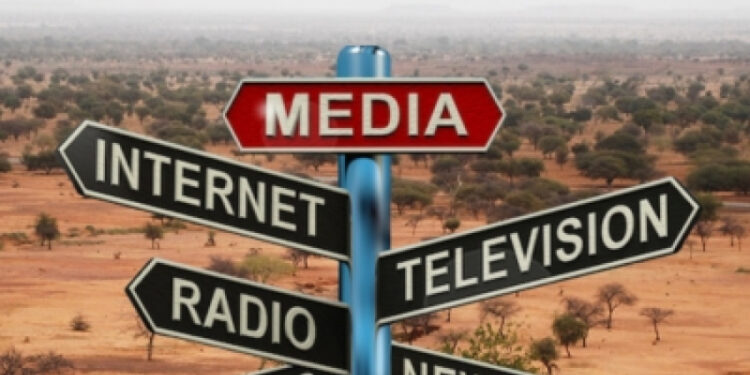Introduction
Disinformation campaigns—defined as the deliberate spread of false information intended to manipulate, mislead, or destabilise—have impacted every region of Africa, with at least 39 countries targeted (African Center for Strategic Studies, 2024). These campaigns have become more concentrated: as of 2024, 20 African countries have faced three or more incidents, compared to only seven in 2022. Countries experiencing conflict are hit the hardest, facing an average of five disinformation operations each, often involving multiple and sometimes contradictory actors (ACSS, 2024).
Foreign Actors
Nearly 60% of these campaigns are state-sponsored by foreign powers, including Russia, China, the UAE, Saudi Arabia, and Qatar. Russia is the most prominent actor, responsible for 80 documented campaigns across 22 African countries, accounting for nearly 40% of disinformation on the continent (ACSS, 2024). These campaigns often disseminate anti-Western, anti-democratic content via coordinated networks of fake accounts and manipulated media.
Election periods are particularly targeted. For example, the Israeli outfit “Team Jorge” has reportedly interfered in over 20 African elections since 2015 (The Guardian, 2023). Domestic actors have also contributed, particularly during recent elections in Kenya and Nigeria (BBC, 2023). Countries with term limits on the presidency are less frequently targeted, suggesting authoritarian influence is a key motive.
The press, a vital countermeasure against disinformation, is weakening under repression. Laws ostensibly aimed at curbing digital falsehoods are being used to silence journalists and activists (Freedom House, 2023).
There are currently 23 continent-wide disinformation campaigns—mostly linked to Russian and Chinese interests—that propagate anti-UN, anti-Western, pro-coup, and climate denial narratives (ACSS, 2024). Russia is the most active, with 16 transnational campaigns orchestrated by its embassies, proxy groups, and the Russian Africa Corps—formed after the death of Wagner Group founder Yevgeny Prigozhin in 2023 (France 24, 2023).
Regional Breakdown
- West Africa (72 campaigns): The most targeted region, particularly Mali, Burkina Faso, and Niger, where Russian networks, military juntas, and Islamist groups are deeply involved.
- East Africa (33 campaigns): High domestic disinformation, especially in Sudan and Kenya. Sudan’s SAF and RSF flood media with rival claims, while extremist groups like Al Shabaab exploit narratives for radicalisation.
- Central Africa (21 campaigns): Peacekeeping missions are frequent targets. Russian influence is entrenched in CAR and DRC.
- Southern Africa (25 campaigns): China is dominant in Zimbabwe, while Russia targets South Africa, using disinformation to support ruling regimes.
- North Africa (15 campaigns): Russian efforts dominate, particularly through Egyptian and RT Arabic media, bolstering authoritarianism in Libya and Tunisia.
This article focuses on the unique consequences of foreign-sponsored disinformation in the Sahel.
Disinformation and Instability in the Sahel
The Sahel region—particularly Mali, Burkina Faso, and Niger—has become a theatre of not just armed conflict but also narrative warfare. As coups and conflict escalate, disinformation functions both as a catalyst and a consequence of political instability (ACSS, 2024).
Weaponising Lies
Disinformation campaigns in the Sahel are deliberate and sophisticated. In Mali and the Central African Republic (CAR), these efforts coincided with the arrival of Russian mercenaries, primarily the Wagner Group. Campaigns falsely accused UN missions like MINUSMA and MINUSCA of collusion with terrorists and resource theft (UN News, 2023). These narratives spread through coordinated Facebook posts, fake documents, and doctored imagery, amplifying public resentment against foreign presence—particularly France—and promoting pro-Russian nationalism (BBC Monitoring, 2023).
Disinformation as a Coup Catalyst
In all three recent Sahelian coups—Mali (2020), Burkina Faso (2022), and Niger (2023)—disinformation helped delegitimise elected leaders. Russian-backed networks cultivated local influencers and pages to propagate messages that framed democracy as a Western tool and military rule as liberation (ACSS, 2024). In Niger, disinformation activity rose over 6,000% after the coup, targeting ECOWAS and French intervention efforts (Al Jazeera, 2023).
This deluge of conflicting information has real-world effects. Many citizens withdraw from public discourse altogether, unsure of what or whom to believe.
Silencing Dissent and Shrinking Civic Space
Efforts to counter disinformation or critique government narratives are increasingly perilous. Mali’s once-thriving online civic space has become repressive. Bloggers and journalists now face threats, online harassment, and criminal charges for speaking out (DoniBlog, 2024). Even social justice discussions, such as those on descent-based slavery or gender rights, are dismissed as Western interference, narrowing public discourse and reinforcing authoritarianism (Human Rights Watch, 2023).
Conclusion
In the Sahel, disinformation is a weapon—deployed to justify military coups, discredit international peacekeeping, suppress dissent, and realign regional loyalties. Addressing it requires more than reactive fact-checking. A meaningful response must include media literacy programs, institutional support for journalism, safeguards for civic freedoms, and accountability for the foreign powers behind these operations.
Disinformation festers in fragile states. Until root causes like poverty, exclusion, and insecurity are addressed, the Sahel will remain vulnerable—not just to bullets, but to disinformation campaigns.
References
- African Center for Strategic Studies. (2024). Disinformation Campaigns in Africa. Retrieved from africacenter.org
- BBC. (2023). Disinformation in Nigeria’s and Kenya’s Elections. Retrieved from bbc.com
- DoniBlog. (2024). Digital Repression in Mali.
- Freedom House. (2023). Freedom on the Net 2023.
- France 24. (2023). Russia’s Africa Strategy after Prigozhin. Retrieved from france24.com
- Human Rights Watch. (2023). Mali’s Civic Space Shrinking.
- The Guardian. (2023). Team Jorge and Election Meddling in Africa. Retrieved from theguardian.com
- UN News. (2023). UN Missions Targeted by Disinformation. Retrieved from news.un.org
- Al Jazeera. (2023). Niger Coup and Social Media Disinformation. Retrieved from aljazeera.com






























